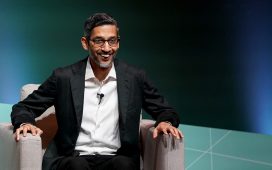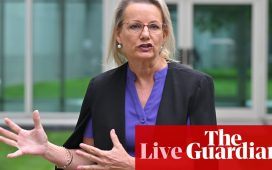This article is an on-site version of our Europe Express newsletter. Sign up here to get the newsletter sent straight to your inbox every weekday morning.
Good morning and welcome to Europe Express, your daily guide to what matters in the EU and beyond. Today, we are stopping in Kyiv, where authorities are gearing up to receive US secretary of state Antony Blinken.
The stakes are high as the Ukrainian president is expecting more military assistance and diplomatic engagement from the US to try to solve the Russian-led conflict in eastern Ukraine, given the lack of progress by Europe’s mediators, Germany and France. Speaking to Financial Times editor Roula Khalaf yesterday, Blinken warned: “If Russia continues to take reckless and aggressive actions, it can be sure we will respond again.”
We will also give you the latest download from Brussels on its industrial strategy 2.0 and attempts to ensure its “open strategic autonomy” when it comes to scarce materials, including rare earths.
And we will explore the implications of Bulgaria’s failure to form a government for its economic recovery and ability to spend EU money.
Stars and stripes
When Blinken arrives in Ukraine today, he will be the first senior member of the Biden administration to visit Kyiv, writes Roman Olearchyk, the FT’s Ukraine correspondent.
The main purpose of the two-day trip is to show support for the pro-western government that has been rattled by Moscow’s amassing of more than 100,000 troops along Ukraine’s eastern border as well as in Russian-occupied Crimea.
The Ukrainian side hopes the visit will produce a US policy shift compared with the dismissive treatment it received from former president Donald Trump, who showed little interest in mediating between Russia and Ukraine and sought to link US military assistance to extracting political “dirt” on Joe Biden.
“Ukraine’s security remains the most important issue on the US-Ukraine agenda,” said an adviser to President Volodymyr Zelensky. “The current status quo is not sufficient for securing Ukraine against future aggression, and Ukraine hopes there will be real action proposed, not just words, to change that.”
During Blinken’s talks with Zelensky, both are expected to address an expanded role Washington could play in breaking a deadlock with Russia over the faltering 2015 Minsk peace accords, which envision the reintegration of Ukraine’s eastern breakaway Donbas region.
In an interview with the FT last week, Zelensky called on the US and UK to join France and Germany in talks with Russia or to take a more active role in pressuring Moscow via another track.
Blinken has signalled increased interest in Washington regarding Ukraine’s plight.
Speaking with CBS’s 60 Minutes programme this weekend, Blinken said: “there are more forces massed on the border with Ukraine than at any time since 2014, when Russia actually invaded.”
But US officials have also expressed intentions to press Zelensky’s administration to speed up reforms and crack down on widespread corruption, starting with the pressing issue of overhauling the graft-prone judiciary system.
In a press briefing last week, state department spokesperson Ned Price said the US was “deeply concerned” by a recent Ukrainian government decision that threatened corporate governance reforms by dismissing the supervisory board and top manager of state gas company Naftogaz after it posted deep losses in 2020.
Diamonds and propellers
The EU faces the threat of supply squeezes on dozens of crucial industrial imports such as diamonds and marine outboard motors, according to an industrial strategy to be published by Brussels today, writes FT EU diplomatic correspondent Michael Peel.
The 34 products, which also include metals, chemicals and active pharmaceutical ingredients, are at the centre of a growing debate over how the bloc manages risks of shortages of critical products and materials.
The Covid-19 pandemic hit to international supply chains has deepened anxieties in the EU of being overly dependent on potentially hostile powers, notably China.
The latest European Commission strategy expanded on work done by top officials including Thierry Breton, internal market commissioner, on possible vulnerabilities to supplies of components needed to make rechargeable batteries and vaccines.
The commission’s analysis of 5,200 imported products has concluded that 34 posed particular vulnerabilities because of their “possibly low potential for further diversification and substitution with EU production”, according to a draft of the industrial strategy seen by Europe Express. The high-risk group included iodine used in pharmaceuticals, beryllium used in aerospace components and cellulose acetate used in coatings and photographic film, people briefed on the work said.
The commission also identified 137 materials in “sensitive ecosystems” — including health and green industries — on which the EU is highly import dependent. Of these materials, China accounted for 52 per cent of supplies by value, followed by Vietnam with 11 per cent and Brazil with 5 per cent.
The strategy follows a commission report last year that found shortages of imported elements used to make batteries and renewable energy equipment could threaten the bloc’s target of becoming climate neutral by 2050.
The EU also urgently wants to reverse a decline over the past 20 years in its share of the global market of semiconductors essential to many digital products.
While the import fears have driven calls to “reshore” production to the EU, experts warned this would create new sets of problems in some cases. For example, building up European capacity in polluting energy-intensive industries such as chemicals manufacturing and metals mining and processing risked clashing with EU environmental rules.
Potential alternatives to reshoring included diversification of import sources, greater recycling and the development of substitute materials.
Chart du jour: Precious resources

With the commission set to lay out its plans today for “open strategic autonomy”, it is worth revisiting the FT’s analysis last year that outlined skyrocketing demand for rare earths.
Bulgarian woes
Political drama and the ousting of one of the bloc’s longest-serving leaders could delay the rollout of EU funding in Bulgaria, writes our south-east Europe correspondent, Valerie Hopkins.
Bulgaria’s political scene was thrown into uncertainty after elections at the end of March saw a decrease in support for established parties, including longtime premier Boyko Borisov’s Gerb, and an unprecedented surge for a populist movement whose leader has refused to form a government.

President Rumen Radev is set to offer the opposition Socialist party (BSP) a stab at forming the government today. But the Socialists remain unpopular with other opposition forces because they have roots in the communist party that led the country during the cold war.
“Everyone is against everyone,” BSP leader Kornelia Ninova said on Saturday. That means a caretaker government will probably be appointed until new elections can be held in July.
The deadlock could raise serious delays to Bulgaria’s approval and implementation of EU spending plans.
The country’s parliament has ratified the “own resources” decision that national assemblies must approve before the funds are disbursed.
But the shortlived parliament was not sufficiently satisfied with the Borisov government’s spending plans and Brussels may determine a caretaker cabinet doesn’t have the clout to move forward with proposals.
Borisov, who has been in power for much of the past 12 years, has announced that he would file the recovery spending plans, as the parliament will cease to operate next week. The problem is that given the new polls and the time it could take parliament to modify the spending plans, the final version could take until autumn, far beyond any deadlines.
But delays are not the biggest problem, argued Ognyan Georgiev, who wrote about EU funds (and irregularities in their use) for the Sofia-based weekly Capital. Borisov has been dogged by scandals and Bulgaria has come under increased scrutiny for alleged abuse of EU funds.
“Delay is a discomfort of course, but not a disaster,” Georgiev said. “It would be a disaster if a new government . . . claiming to be totally transparent and willing to end corruption, didn’t attempt to change a thing in the biggest state investment program Bulgaria has in the next decade.”
Two things to watch today
-
US secretary of state Antony Blinken meets Ukraine’s president Volodymyr Zelensky in Kyiv
-
The European Commission puts forward legislative proposals on foreign subsidies and “open strategic autonomy”
Notable, Quotable
-
US top diplomat Antony Blinken has rejected claims of a cold war with China. In his interview with FT editor Roula Khalaf for The Global Boardroom, Blinken said he resisted “putting labels on most relationships”.
-
Elections in Madrid have dealt a blow to the party of Prime Minister Pedro Sánchez and ended the career of Podemos leader Pablo Iglesias.
-
The CDU’s candidate for the German chancellorship Armin Laschet told Handelsblatt why he would be better on energy policy than the Greens’ Annalena Baerbock.
-
More than 200 government websites in Belgium, including the country’s Covid-19 portal, have reportedly been targeted by a cyber attack. Several politicians and observers noted that the incident coincided with a planned parliamentary hearing on China’s internment of Uyghur Muslims in its western Xinjiang region.
-
“He made Belgium bigger and France smaller, it’s not a good idea.” TF1 has the details on why a farmer moved the border between France and Belgium — by two metres.
Are you enjoying Europe Express? Sign up here to have it delivered straight to your inbox every workday at 7am CET. Do tell us what you think, we love to hear from you: europe.express@ft.com.
Today’s Europe Express team: roman.olearchyk@ft.com, michael.peel@ft.com, valerie.hopkins@ft.com, david.hindley@ft.com, valentina.pop@ft.com. Follow us on Twitter: @Mikepeeljourno, @VALERIEin140, @valentinapop.








